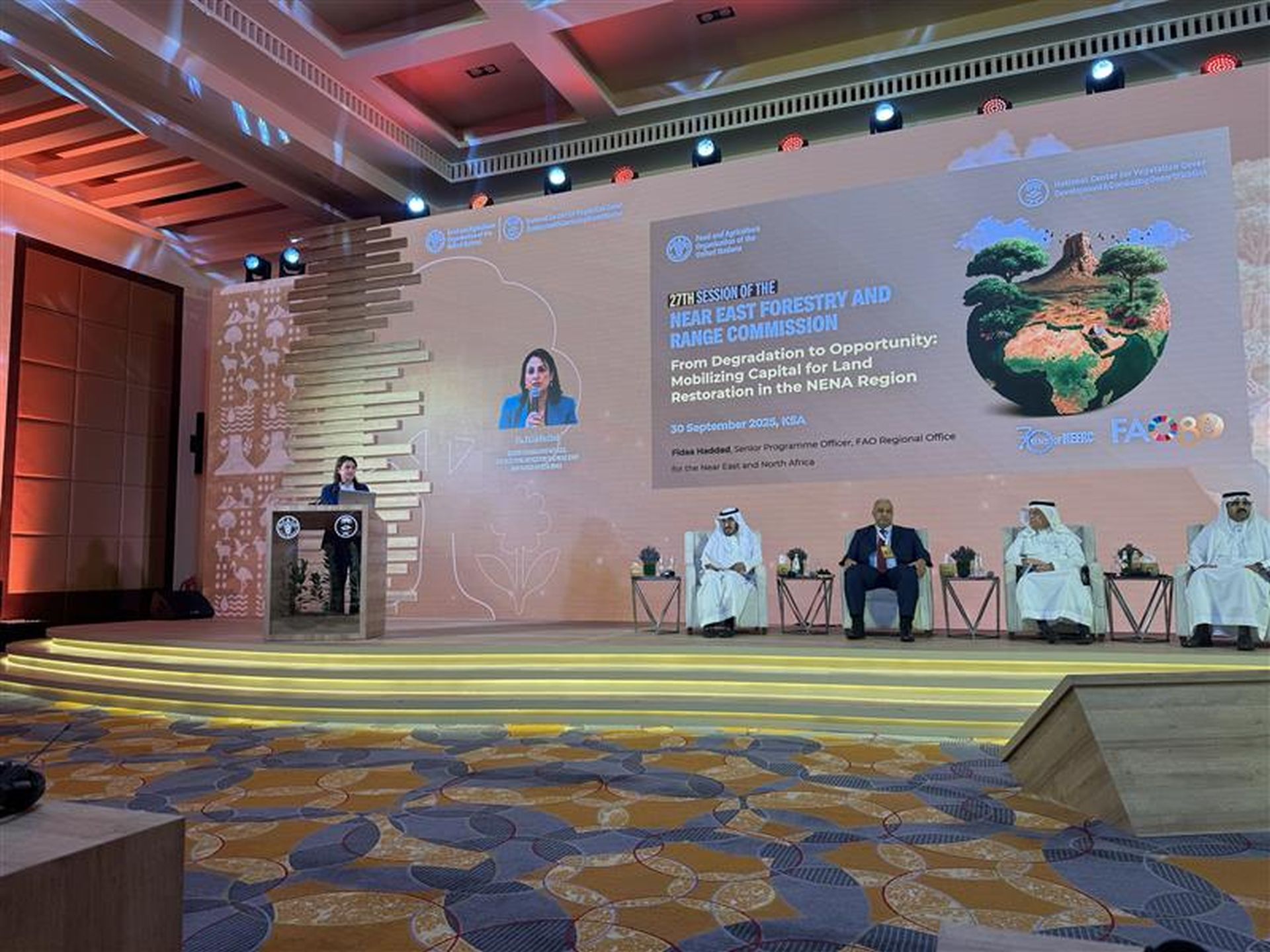FAO launches white paper on sustainable land investment at Near East Forestry and Range Commission Investors’ Panel

©FAO
The Food and Agriculture Organization of the United Nations (FAO) today officially launched the white paper “Reimagining Sustainable Returns on Investment for Planet and People. A Near East and North Africa Regional Approach to Ecosystem Restoration and Development Solutions” at the Investors’ Panel, “From Degradation to Opportunity: Mobilizing Capital for Land Restoration,” held during the 27th Session of the Near East Forestry and Range Commission (NEFRC).
The launch marks a milestone in FAO’s 80th anniversary year and the 70th anniversary of the NEFRC, underscoring decades of collaboration across the region to protect and restore land, water, and forest resources. The initiative builds on restoration commitments covering more than 30 million hectares of degraded land in the Near East and North Africa (NENA), where land degradation causes an estimated USD 22 billion in crop yield losses annually and affects the food security of more than 60 million people.
In her presentation, Ms. Fidaa Haddad, Senior Programme Officer at FAO’s Regional Office for the Near East and North Africa, outlined FAO’s regional programme on ecosystem restoration, emphasizing its potential to deliver up to twenty times economic, social, and environmental returns for every dollar invested. She highlighted how the programme aims to operationalize the Regional Investment Framework through knowledge sharing, blended finance, and community-led restoration.
Five countries in the region are already acting as “Champion Countries” under this restoration framework, committing to piloting the approach at the national level, helping to generate knowledge and lessons to inform implementation and emphasize regional collaboration.
The Investors’ Panel brought together high-level representatives from governments, financial institutions, and the private sector. Moderated by Eng. Abduh bin Qasim Al-Sharif, Assistant Deputy Minister for International and Climate Affairs at the Ministry of Environment, Water and Agriculture of the Kingdom of Saudi Arabia, the session featured contributions from international finance and development institutions alongside private sector leaders. Speakers included Mr Houtan Bassiri, Innovative Financing and Partnerships Manager at the Global Mechanism of the UNCCD; Ms Andrea Kutter, Senior Natural Resources Management Specialist at the World Bank; Mr Mohamed Naoufel Ben Haha, Director General of Forests at the Tunisian Ministry of Agriculture, Water Resources and Fisheries; Mr Hany Bahy, Chief Financial Officer of the Sekem Group in Egypt; Dr. Ahmed Hariri, Advisor at the General Secretariat of the Middle East Green Initiative; Mr Mohammed Alyami, Private Sector Manager at the Islamic Development Bank Group; and Ms Njoud Alyousef, Lead on Startups and SMEs Engagement at the UN Global Compact Network Saudi Arabia.
Speakers emphasized the urgent need to bridge the USD 35 billion annual financing gap for climate and land restoration in the region, while showcasing investment-ready initiatives and models that make restoration a profitable and resilient long-term investment
Written by FAO with the technical support of the United Nations Convention to Combat Desertification (UNCCD) Global Mechanism (GM), United Nations Environment Programme (UNEP), United Nations Economic and Social Commission for Western Asia (ESCWA), and the League of Arab States (LAS), the white paper lays out a regional investment framework to transform ecosystem restoration into a driver of inclusive growth, food security, and resilience. It highlights how blended finance, innovative mechanisms such as green bonds and debt-for-nature swaps, and support for youth, women, and smallholders can unlock sustainable private capital and deliver long-term Sustainable Returns on Investment (SROI).
FAO and its partners will now move toward operationalizing the framework with pilot projects, financing partnerships, and knowledge platforms. The session reaffirmed the potential of land restoration to drive sustainable development in the Near East and North Africa, highlighting its role in generating growth, resilience, and prosperity.
